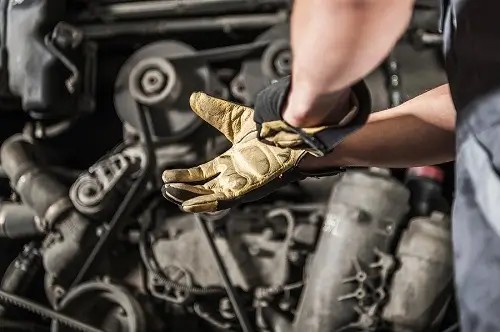When considering a new vehicle, a crucial question often arises: should you opt for diesel or gasoline? Diesel vehicles boast numerous advantages, yet they also come with perceived drawbacks, particularly regarding maintenance and repair expenses. A common belief is that diesel engines are inherently more costly to repair and maintain. But is this always the case? While there might be some truth to this, it’s important to understand that diesel vehicles often require less frequent repairs compared to their gasoline counterparts.
One key aspect where diesel vehicles show their экономичность is the frequency of shop visits. Diesel vehicles often require fewer trips to the repair shop over their lifespan. While the oil change intervals for diesel engines are generally similar to those of gasoline engines, diesel engines differ significantly in their ignition system. Unlike gasoline engines that rely on spark plugs to ignite the air-fuel mixture, diesel engines utilize compression ignition. This process compresses the air and fuel mixture to such a high degree that the heat generated ignites the diesel fuel spontaneously, eliminating the need for spark plugs altogether. This difference contributes to reduced maintenance needs as spark plug replacements are not necessary in diesel engines. It’s worth noting that manufacturers may recommend more frequent maintenance for diesel vehicles used for heavy towing. However, gasoline vehicles subjected to similar extreme conditions, like frequent towing or mountainous driving, also necessitate more frequent maintenance.
 Closeup image of a mechanic wearing his gloves in preparation for heavy-duty diesel engine repair work.
Closeup image of a mechanic wearing his gloves in preparation for heavy-duty diesel engine repair work.
Another significant advantage of diesel engines lies in their longevity. While both diesel and gasoline engines are internal combustion engines, diesel engines are renowned for their extended lifespan. This durability stems from the robust construction of diesel engines. Due to the high compression forces they endure, diesel engines are built with stronger internal components compared to gasoline engines. Gasoline engines, which use spark ignition and operate at lower compression ratios, do not require the same level of heavy-duty parts. Consequently, while the initial purchase price of a diesel vehicle is typically higher, and diesel parts can be more expensive, these engines tend to be more resilient. They are less prone to breakdowns and component wear compared to gasoline engines. On average, a gasoline-powered vehicle might require significant repairs after approximately 200,000 miles. In contrast, a diesel vehicle can often reach a million miles before needing major repairs, highlighting their inherent durability and potential long-term cost savings.
So, is investing extra in a diesel engine genuinely worthwhile? In conclusion, opting for a diesel engine can be a sound financial decision if you intend to keep your vehicle for a decade or more, frequently engage in towing, or regularly drive under severe conditions. While the upfront cost and potentially individual part costs might be higher, diesel engine repair tends to be less frequent than gasoline engine repair, and routine maintenance is generally comparable. This combination of durability and less frequent repair needs can offset the initial cost, making diesel vehicles a cost-effective choice over the long run, especially for demanding usage scenarios.

